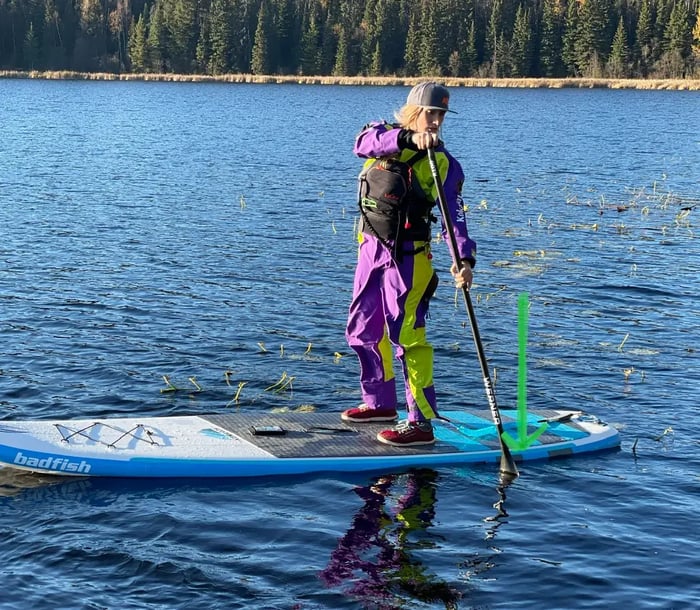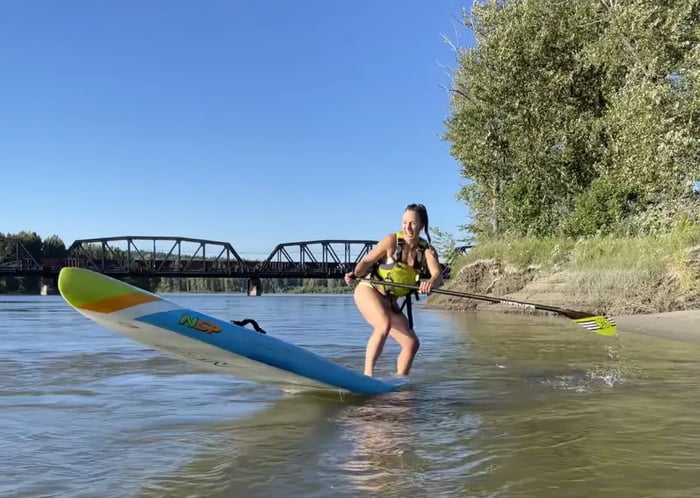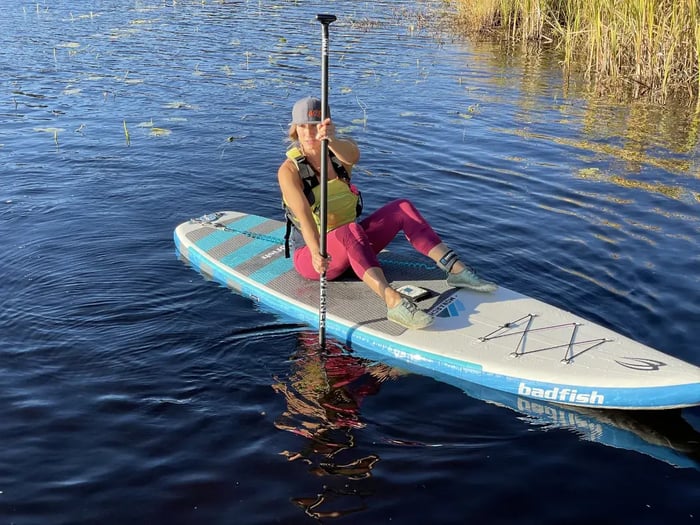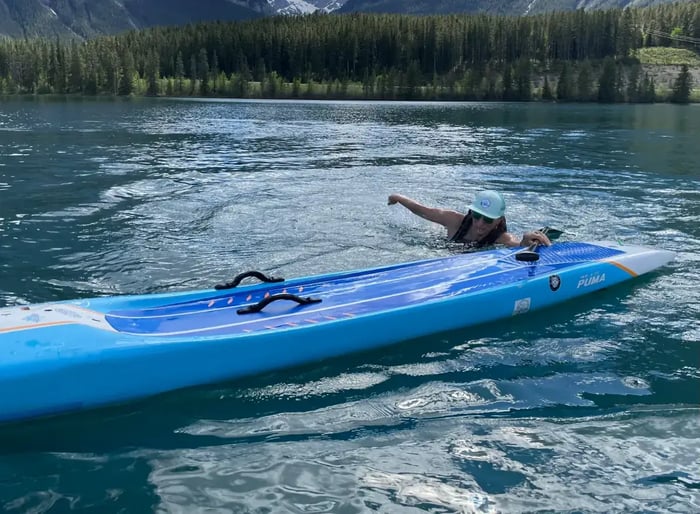This seemingly simple stroke comes in handy as a paddler advances further into their adventures and disciplines.
A reverse paddleboard stroke can be used for different reasons. It can be used for slowing down forward momentum, stopping or creating backwards momentum. To prevent yourself from running your board into shore you can slow down. You can stop your board if another paddler is about to cut you off. You can create backwards momentum in a river eddy in order to keep yourself away from other paddlers.
Shop AQ Outdoors SUP Collection
How to Paddleboard Reverse Stroke

Body Position
Starting in whichever foot position you are in, rotate your upper body slightly toward the tail of the board. The power of this paddle stroke comes from the core of the paddlers body, not from the arms. It is also important to rotate so you can check over your shoulder to see what is happening behind you

Planting
The “catch”, plant or immersion of the blade is different from a forward stroke. The reverse stroke uses the backside of the paddle blade, not the power face. The blade enters the water behind the paddler's feet. The blade should be perpendicular to the stringer of the board. The paddle is kept perpendicular to the surface of the water, vertical.

Power/Propulsion

The propulsion or momentum is created by the blade being pushed down into the water and the body untwisting or rotating back to neutral. Remember to keep the paddle as vertical as possible. Stop the power phase at the feet. This is a short paddle stroke in length.

Release
Releasing is to remove the forces off the blade and to take it out of the water with the least disturbance. To do this at the end of the power phase of the reverse stroke, rotate the thumb on the t-handle hand towards the nose of the board. This will bring the blade parallel to the rail of the board for ease of removal from the water

This paddle stroke is massively affected by the fin on the paddle board. It will make this paddle stroke seem less effective compared to being in kayak or canoe. The paddler will have to switch sides continuously to create a reverse momentum and to stay somewhat straight.
Adding the reverse stroke to your paddling skill set is an absolute must. This simple stroke adds fine board control to prevent collisions and allows a paddler to stay safe when multiple paddlers are nearby.
“Dreams don't work unless you do”
Kimberley Kenyon
Badfish Team Athlete
Kokatat Team Athlete
AQ Outdoors Whitewater SUP
Advanced and River 1 SUP Instructor Paddle Canada
@borntoboard.ca
Shop AQ Outdoors SUP Collection
AQ Outdoors Contact
Edmonton: (p) 780 463-4892 (e) info@aquabaticsedmonton.com
Calgary: (p) 403 288-9283 (e) info@aqoutdoors.com





















































